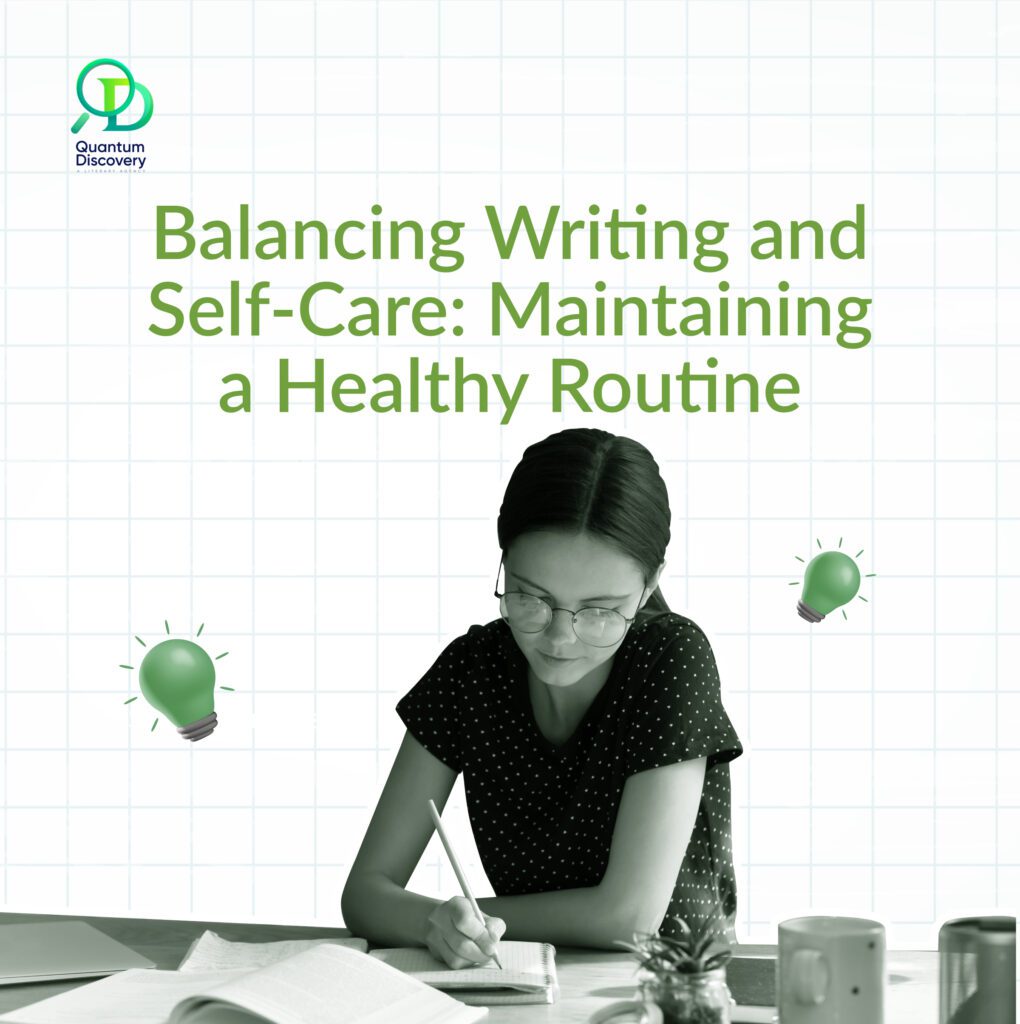Writing is a passionate pursuit, but it’s also a demanding one. Authors often find themselves caught in a delicate balance between their creative work and self-care. In this article, we will explore the vital importance of harmonizing writing with self-care and provide valuable tips for maintaining a healthy and sustainable writing routine.
The Writing Dilemma
- Passion vs. Burnout: Writing is a labor of love, but it can also lead to burnout if not managed properly. Ignoring self-care can lead to writer’s block, exhaustion, and dwindling enthusiasm.
- The Myth of the Tortured Artist: The stereotype of the tormented writer may be romanticized, but it’s not sustainable. Neglecting self-care can have serious physical and mental health consequences.
The Importance of Balance
- Productivity and Creativity: Contrary to the belief that overworking yields better results, a well-balanced writer is often more productive and creative.
- Mental health: Writing can be emotionally draining. Practicing self-care safeguards your mental health, preventing writer’s anxiety and depression.
Tips for Balancing Writing and Self-Care
- Set Boundaries: Establish dedicated writing hours and stick to them. Equally important, set boundaries for when you stop writing to rest and recharge.
- Prioritize self-care: self-care should be non-negotiable. Schedule regular breaks, exercise, and engage in activities that bring you joy and relaxation.
- Embrace the Pomodoro Technique: Use this time-management method to break your writing sessions into manageable chunks with built-in breaks for self-care.
- Healthy Lifestyle: Maintain a balanced diet, get sufficient sleep, and stay hydrated. A healthy body supports a healthy mind.
- Social Connection: Writing can be isolating. Stay connected with friends and family to maintain a sense of community and support.
Mindfulness and stress management
- Meditation: Incorporate mindfulness meditation into your routine to reduce stress and enhance focus.
- Journaling: Regularly journaling your thoughts and feelings can be therapeutic and help manage stress.
Learn to say no.
- Overcommitting: Avoid taking on too many writing projects at once. Learn to say no when your plate is full.
Seek professional help.
- Therapy: If you’re struggling with mental health issues related to writing, consider seeking professional therapy or counseling.
Conclusion: The Balanced Writer
A balanced writer is not only more productive but also happier and healthier. Balancing writing with self-care is not a luxury; it’s a necessity. By setting boundaries, prioritizing self-care, and managing stress, writers can cultivate a sustainable and fulfilling routine that allows them to thrive both in their craft and in life. Remember, taking care of yourself is not a hindrance to your writing; it’s the fuel that keeps your creative fire burning bright.
